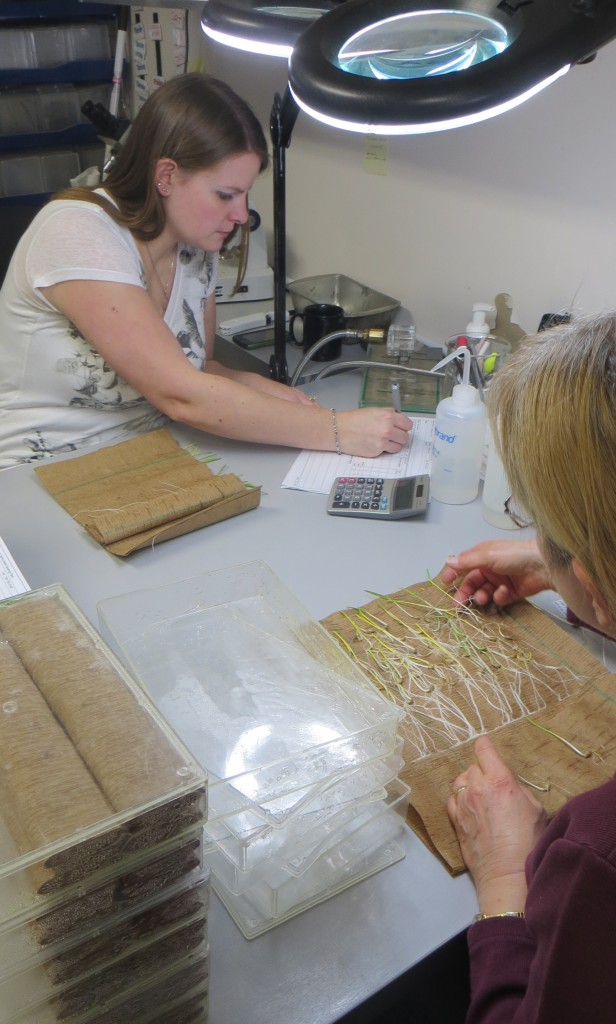 The Germination Test
The Germination Test
The object of germination testing is to determine the maximum germination potential of the seed. Testing under field conditions cannot normally be repeatable. Laboratory methods have evolved in which controlled conditions are used to give rapid and complete germination for the majority of samples of a particular species. The conditions have been standardized within limits as near a possible to those determined by random sample variation.
Seed Germination in seed laboratory practice is defined as:
The emergence and development from the seed embryo those essential structures which, for the kind under test, are indicative of the ability to produce a useful, mature plant under favourable field conditions.
The competent seed analyst plants pure seed under prescribed conditions for the species being tested. The seeds are incubated for the prescribed period of time. Then the seed analyst evaluates the test.
Seeds are normally sorted into six categories:
Normal Seedlings:
Seedlings possessing the essential structures that are indicative of their ability to produce useful mature plants under favourable field conditions.
Abnormal Seedlings:
A seedling that does not have all essential structures or is damaged, deformed or decayed that prevents normal development.
Dead Seeds:
Seeds which are neither hard nor dormant or have not produced any part of a seedling.
Dormant Seeds:
Viable seeds, other than hard seed which fail to germinate when provided prescribed germination conditions.
Fresh Seeds:
Seeds which have imbibed moisture but have failed to germinate and may be dormant.
Hard Seeds:
Seeds which remain hard at the end of the test period because their impermeable seed coats prevent the absorption of water.
Causes of Seedling abnormalities:
- Mineral deficiencies in the soil
- Frost damage
- Heating
- Mechanical damage
- Insect damage
- Chemical injury
- Declining vigour
- Pathogenic infections
Seed Check uses highly qualified seed technologists and strict quality control procedures to ensure our clients receive accurate germination test results.
Literature cited:
- CFIA, Canadian Methods and Procedures for Testing Seed
- AOSA, Seedling Evaluation Handbook.
Research these documents and more:
